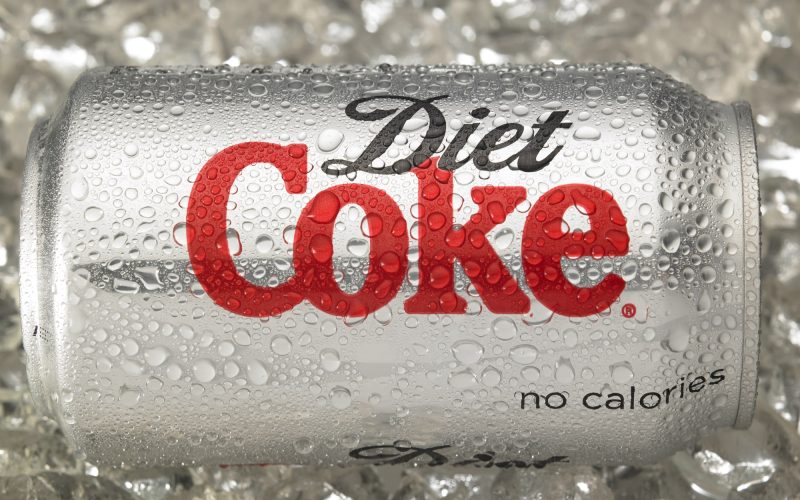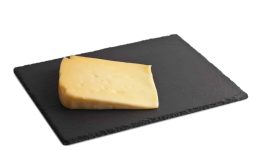Understanding the calories in your food and beverages is key to maintaining a balanced diet and healthy lifestyle.
In this article, we’re focusing on the number of calories in Diet Coke, but first, let’s delve into why counting calories is significant.
Why Count Calories?
Counting calories helps you monitor your daily energy intake.
The excess is stored as fat when you consume more calories than your body needs.
Over time, this can lead to weight gain and associated health risks.
If you’re looking to maintain, lose, or gain weight, being aware of the calories you’re consuming and burning each day can help you reach your goals.
For those interested in learning more about calorie counting, you can find a detailed guide in our article on what is calorie counting.
What are “Empty Calories”?
Empty calories’ is a term used to describe foods and drinks that provide energy but little to no nutritional value.
These often include sugary drinks, sweets, and fast foods. Empty calories can add up quickly and contribute to weight gain without providing the nutrients your body needs to function optimally.
Diet Coke, while low in calories, can be considered a source of empty calories as it lacks significant nutritional value.
However, understanding the calorie content of such drinks, like how many calories in Diet Coke, can be valuable for those tracking their calorie intake.
It’s all part of making informed decisions about your consumption.
Understanding Diet Coke
When you’re counting calories, every little bit counts. That’s why it’s important to be aware of the calorie content in the beverages you consume. That’s where Diet Coke comes into play.
What is Diet Coke?
Diet Coke is a popular low-calorie version of regular Coke. It’s designed to taste similar to the original, but it trades in the sugar and calories for artificial sweeteners.
This means you get a Coke’s fizzy, refreshing taste without consuming the typical calories in a sugary soft drink.
How is Diet Coke Different from Regular Coke?
The main difference between Diet Coke and regular Coke lies in the calorie content and sweeteners.
Regular Coke is sweetened with high-fructose corn syrup or sugar, which contributes to its calorie content.
On the other hand, Diet Coke uses artificial sweeteners, which mimic the sweetness of sugar but do not contribute calories.
| Regular Coke | Diet Coke | |
|---|---|---|
| Sweeteners | High-fructose corn syrup or sugar | Artificial sweeteners |
| Calories per 12 oz | ~140 calories | 0 calories |
This difference makes Diet Coke a popular choice for those who are trying to reduce their calorie intake.
However, it’s important to note that just because Diet Coke has fewer calories doesn’t necessarily mean it’s healthier.
It still lacks nutritional value and contains artificial sweeteners, which may have other health considerations.
In the sections that follow, we’ll dive deeper into how many calories are in Diet Coke, why it contains fewer calories, and how it fits into a low-calorie diet.
Stay tuned if you want to learn more about the calorie content in your favorite beverages, from Diet Coke to iced coffee and beyond!
The Calorie Content of Diet Coke
Understanding the calorie content in your beverage choices plays an essential role in managing your daily calorie intake.
If Diet Coke is a part of your routine, you’re probably curious about how many calories are in Diet Coke and why it has fewer calories than its regular counterpart.
How Many Calories are in Diet Coke?
Diet Coke, as the name suggests, is a low-calorie beverage. In fact, a standard 12-ounce can of Diet Coke contains zero calories.
Here’s a simple table to give you an idea of the calorie content in different serving sizes of Diet Coke:
| Serving Size | Calories |
|---|---|
| 1 Can (12 oz) | 0 |
| 1 Bottle (16.9 oz) | 0 |
| 1 Small Cup (16 oz) | 0 |
| 1 Medium Cup (21 oz) | 0 |
| 1 Large Cup (32 oz) | 0 |
Why Does Diet Coke Have Fewer Calories?
The reason why Diet Coke has zero calories lies in the ingredients used.
Unlike regular Coke, which uses high-fructose corn syrup as a sweetener, Diet Coke is sweetened with an artificial sweetener called aspartame.
Aspartame is a low-calorie sweetener that is about 200 times sweeter than sugar, meaning only a tiny amount is needed to give Diet Coke its sweet taste.
Because of this, Diet Coke can deliver a sweet flavor without adding any calories to your diet.
While Diet Coke can be a good choice if you’re counting calories, it’s also important to consider the overall nutritional value of your beverage choices.
Remember, just because a drink is low in calories doesn’t necessarily mean it’s healthy.
For example, Diet Coke doesn’t provide any essential nutrients, and its artificial sweeteners can have different effects on the body than sugar.
When planning your low-calorie diet, exploring a variety of beverage options, not just Diet Coke, can be helpful.
Many other low-calorie drinks are available that can provide nutritional benefits and hydration.
As always, it’s best to consult with a dietitian or health professional to determine the best dietary choices for your specific needs.
To learn more about calorie counting and other low-calorie foods and beverages, check out our other articles on calorie counting and how many calories in other foods and drinks.
Is Diet Coke Good for a Low-Calorie Diet?
When you’re counting calories and looking for ways to reduce your daily intake, you may wonder about the role of Diet Coke in your diet.
Let’s break down how it may or may not fit into a low-calorie diet plan.
Diet Coke and Weight Loss
As we’ve established, Diet Coke is essentially a zero-calorie beverage.
This makes it a tempting choice if you’re trying to lose weight or maintain a healthy weight.
It can serve as a satisfying substitute for higher-calorie beverages, helping you to reduce your overall calorie intake.
However, it’s important to note that drinking Diet Coke should not replace a balanced diet or regular physical activity.
While it may aid in reducing your calorie intake, consuming a variety of nutrient-rich foods and participating in regular exercise are key aspects of a healthy weight management plan.
Potential Drawbacks of Diet Coke for Calorie Counters
While the lack of calories in Diet Coke might seem like a major advantage, other factors should be considered.
Diet Coke contains artificial sweeteners, which can trigger a sweet tooth and potentially lead to cravings for sugary foods.
If these cravings lead to indulging in high-calorie snacks, it could counteract the calorie-saving aspect of drinking Diet Coke.
Additionally, some studies suggest that consumption of diet beverages may be associated with metabolic changes that could lead to weight gain and other health issues over time.
It’s important to approach Diet Coke as a small part of your diet, not as a magic bullet for weight loss.
Remember, balance is key when it comes to maintaining a healthy diet. Suppose you’re curious about the calorie content of other foods and beverages.
In that case, you might find our articles on how many calories in fried chicken, how many calories in pizza, or even how many calories in wine helpful.
No matter your dietary choices, staying informed is the first step toward reaching your health goals.
Other Nutritional Aspects of Diet Coke
While the low-calorie content of Diet Coke is often the main focus, it’s also important to consider its other nutritional aspects.
Let’s delve into the other nutrients in Diet Coke and understand the role of artificial sweeteners.
What Other Nutrients are in Diet Coke?
Aside from being low in calories, Diet Coke also contains no fat, protein, or carbohydrates. This is why it’s often referred to as a “zero-calorie” beverage.
Here’s a breakdown of the nutritional content per 12-ounce serving:
| Nutrient | Amount |
|---|---|
| Calories | 0 |
| Fat | 0g |
| Protein | 0g |
| Carbohydrates | 0g |
| Sugar | 0g |
| Sodium | 40mg |
As you can see, Diet Coke is a source of sodium. While the amount is relatively small, it’s still something to consider if you’re watching your sodium intake.
Understanding Artificial Sweeteners in Diet Coke
Diet Coke can be low in calories yet still sweet because of the use of artificial sweeteners.
Unlike regular sugar, these sweeteners provide sweetness without the added calories.
The main artificial sweetener used in Diet Coke is aspartame.
Aspartame is a low-calorie sweetener that’s around 200 times sweeter than regular sugar.
This means only a small amount is needed to achieve the desired sweetness, contributing to the low calorie count.
However, it’s worth noting that while artificial sweeteners offer a calorie-free alternative to sugar, their use is not without controversy.
Some studies suggest potential health issues related to artificial sweeteners, while others deem them safe for consumption.
It’s always a good idea to research and consult a healthcare provider if you have any concerns.
In the end, Diet Coke can be a part of your low-calorie diet, but it shouldn’t replace water or other nutritious beverages. Remember, balance is key to any healthy diet.
If you’re curious about the calorie content of other foods and drinks, you might find our articles on how many calories in pizza or how many calories in wine interesting.
Calorie Counting Tips and Tricks
Knowing how to incorporate Diet Coke into your meal plan can be useful if you’re counting calories.
Let’s explore some strategies for this and other low-calorie beverage options you might consider.
How to Incorporate Diet Coke into a Healthy Diet
While Diet Coke is free of calories, it’s important to note that it doesn’t contribute any nutritional value to your diet.
Therefore, it’s best to think of it as an occasional treat rather than a regular part of your meal plan.
Here are a few tips to keep in mind:
- Moderation is Key: While Diet Coke can be a zero-calorie way to satisfy your sweet tooth, it’s best to consume it in moderation. Too much of any zero-calorie sweetened drink can potentially lead to cravings for other sweet foods.
- Stay Hydrated: Diet Coke should not replace the water in your diet. Make sure you’re still drinking plenty of water throughout the day.
- Pair it with Nutrient-Dense Foods: If you choose to enjoy a Diet Coke, pair it with foods high in nutrients. This can help ensure you still get the vitamins and minerals your body needs.
Other Low-Calorie Beverage Options
If you’re looking for other low-calorie beverages besides Diet Coke, plenty of options are available.
Here are a few to consider:
- Water: It’s calorie-free, hydrating, and essential for your health.
- Unsweetened Tea: Whether hot or iced, unsweetened tea can be a flavorful and calorie-free option. Green tea and herbal teas can also offer health benefits.
- Black Coffee: If you enjoy coffee’s flavor and caffeine boost, a cup of black coffee has only a few calories. Check out our article on how many calories in black coffee for more information.
- Non-Alcoholic Beer: If you’re looking for a low-calorie beverage that still has some flavor, non-alcoholic beer can be a good option. For more details, you might want to read our article on how many calories in non-alcoholic beer.
| Beverage | Calories |
|---|---|
| Water | 0 |
| Unsweetened Tea | 0 |
| Black Coffee | 2 |
| Non-Alcoholic Beer | 10-50 |
Remember, the goal of calorie counting is not to eliminate all calories but to make sure the calories you consume come from nutritious sources.
By learning how many calories are in Diet Coke and other beverages, you’re taking a proactive step toward managing your health and wellness.








